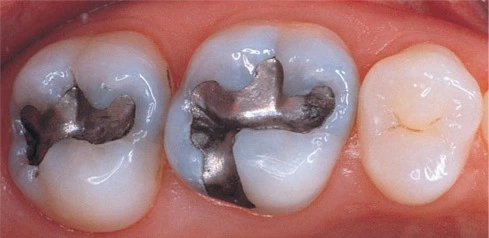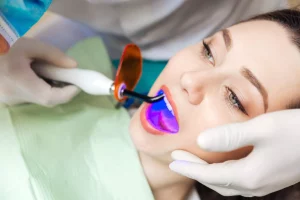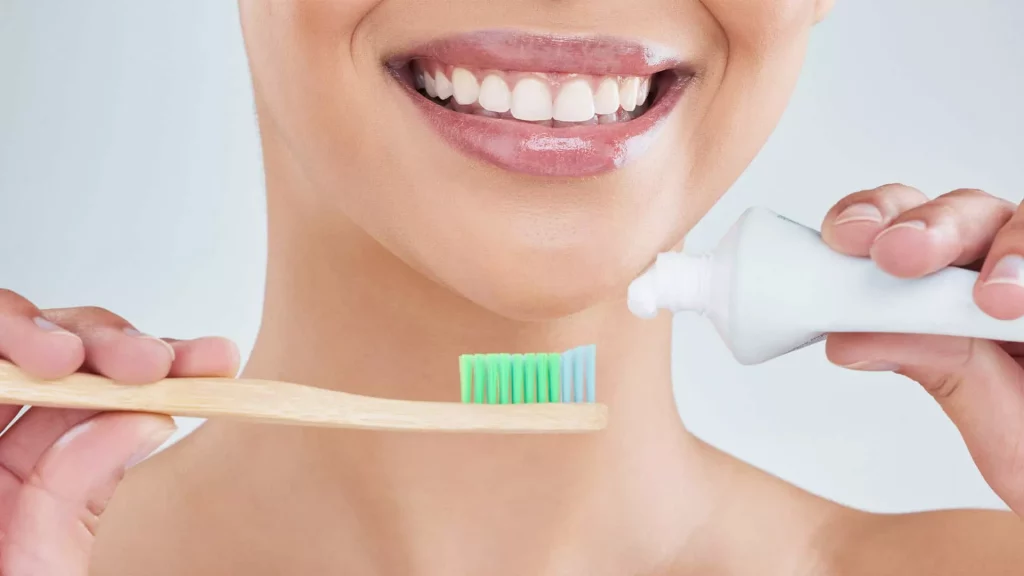Last Updated on: 4th December 2024, 04:30 pm
What is an Amalgam Filling
An amalgam filling is one of the oldest restorations for cavities in teeth caused by tooth decay. Restorations with this material appeared at the end of the 17th century and were modified at the beginning of the 20th. They have better properties, such as resistance to corrosion. A dental amalgam filling is a mixture of metals such as silver, copper, and tin. It is composed of approximately 60% liquid mercury.
The presentation of modern amalgam, accepted by the American Dental Association, is in capsules that contain the exact proportion of metals to facilitate use since it reduces the dentist’s time by making it easier to mix. The exact proportion is essential to maintain the properties of the material. Amalgam fillings have been a material of choice because of their low cost, easy application, and long-lasting, resistant properties.
Advantages and Disadvantages
Thanks to its different properties, amalgam fillings have been the most widely used dental material, especially in cavities in posterior and large teeth. However, to be able to use it, cavities must meet certain requirements to retain the material.
-
Size
To fill cavities with amalgam, dentists must create space in the affected tooth of a large size and specific shape. It is sometimes considered aggressive and unnecessary because it wears down the teeth, even the healthy parts. Currently, thanks to new materials and techniques, there is what is known as minimally invasive dentistry, where such amalgam fillings are necessary only in the areas really affected by caries. They can be filled with resins without the need to expand the cavity just to retain the material. In this regard, resins use a type of chemical adhesion that helps retention in small cavities, yet is not extensive.
-
Aesthetics
The great disadvantage of an amalgam filling is the lack of aesthetics as compared to new materials that provide a similar tooth. It can mimic it to such an extent that no one would notice there had been a restoration. On the other hand, an amalgam due to its silver color will be very noticeable and contraindicated in the front teeth.
-
Shrinkability
One of the appreciated characteristics of an amalgam filling is the low shrinkage after being placed inside the cavity, unlike the new restorative materials that suffer a certain degree of shrinkage. This translates into more durability since the space between the tooth and the material will be minimal such that food and bacterial debris are less likely to remain on the surface.
-
Biocompatibility
Research at the National Institute of Dental and Craniofacial Research reports higher levels of mercury in blood and urine in people with amalgam restorations, which can be interpreted as a risk for a certain degree of toxicity long term. However, they also mention that we can find large amounts of mercury in the environment and our food, so the direct health effects of amalgam filling restorations are still in doubt.
Should Amalgam Restorations be Removed?
As mentioned, amalgam filling restorations are characterized by high durability. If you have restorations with this material, as with others, it is advisable to make regular visits to your dentist to check the condition of the restorations. If your dentist deems the restorations to be in good condition, it will not be necessary to change them since the removal of an amalgam is not highly recommended because mercury particles may be released during the process. In addition, the tooth structure may be compromised and weakened as the tooth will have a large cavity to retain the material.
What other Materials can be used as Cavity Fillings?
The durability of filling materials upon different factors. The appropriate material of an amalgam filling should ensure the health of the tooth, the mouth, and the patient. Currently, the FDA recommends avoiding amalgams as much as possible since newer materials are based on resins and a glass ionomer, whose durability has been improving in recent years.
However, these materials still cannot compete with some of the characteristics of amalgams, especially in large cavities in posterior teeth. In spite of this, resin-based materials require less tooth tissue removal. On the other hand, given that the color is similar to a natural tooth, it is a further advantage, especially in anterior teeth.
Contact us
If you have any questions about this or other topics, you can contact us at Channel Islands Family Dental as well as our page on Facebook. We look forward to your visit and we will make a timely diagnosis. Our dentists in Oxnard, Santa Paula, Ventura, Newbury Park, and Port Hueneme will be able to guide you toward the best treatment to take care of your health and give you back your best smile.














